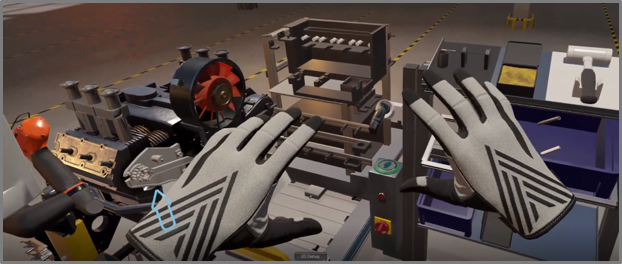Immersive collaboration offers companies innovative ways to effectively train and develop both hard and soft skills.
Immersive learning experiences: XR technologies such as virtual reality (VR) and augmented reality (AR) create immersive learning environments that increase employee engagement and motivation. Realistic simulations allow complex technical skills (hard skills) to be learned in a practical and risk-free manner.
Interactive soft skills training: Soft skills such as communication, teamwork, and leadership can be trained in an interactive and realistic way. Virtual scenarios allow participants to take on different roles and receive direct feedback, leading to lasting improvement in interpersonal skills.
Cost efficiency and flexibility: Immersive collaboration reduces the need for physical training spaces and expensive equipment. Companies can design training programs flexibly and tailor them to the individual needs of their employees, leading to more efficient use of resources.
Global learning and collaboration: XR technologies enable teams around the world to work and learn together in a shared virtual environment. This promotes the exchange of knowledge and collaboration across geographical borders, which is particularly beneficial in globally active companies.
Typical Use Cases
- MS Mesh, rooom, and Spatial.io are well-suited for simple group-based soft skills training.
- For hardskill training and service, we rely on the No Code Editor from the manufacturer AIDAR, which you can use to create your own training courses and tutorials and provide remote support.
- in very few exceptional cases is the effort for an individual development worthwhile.
- ...
